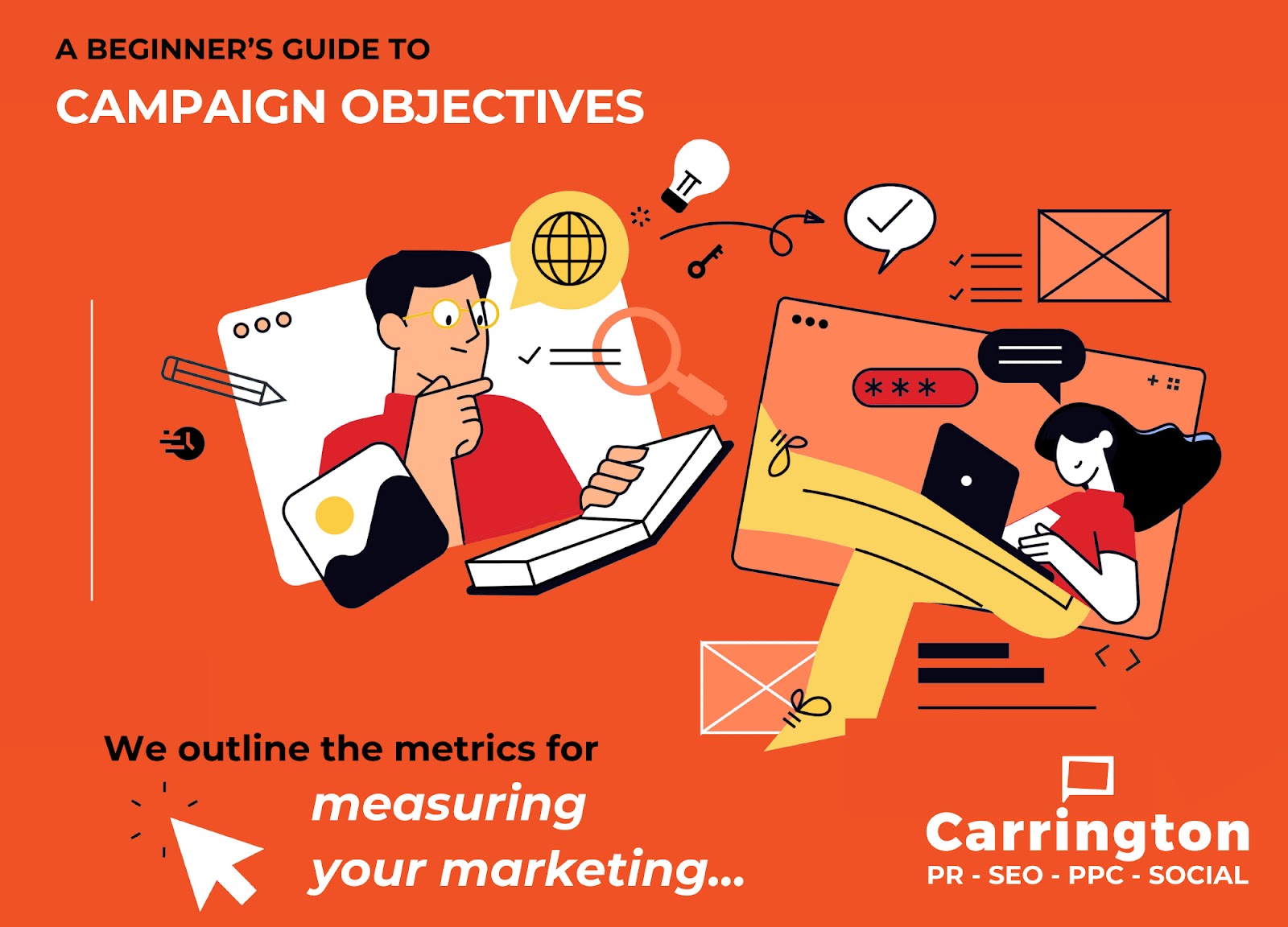When it comes to public relations and marketing, success isn’t all coverage and conversions.
While it’s rewarding to see your story published in print or driving traffic online, you can’t truly chalk something up as a triumph without first defining what that means in context.

What are campaign objectives?
In short, a campaign objective is your end goal.
It’s what you want to achieve through your marketing efforts and it must form the foundation of your marketing strategy. Whether you’re aiming to aggregate brand awareness (for an informational campaign, perhaps) or see a surge in sales to boost your bottom line, your campaign objective will shape everything: from who you target to how you phrase your messaging, the format it will take and how much you spend on ads.
Think of it as the destination on your marketing roadmap. Campaign objectives give your efforts purpose and direction. They give you a palpable point to aim for – which is vital. They’ll help you focus on what you want to achieve and allow you to track progress in real-time. Without them, you’re all too likely to get lost.
What should my campaign objective be?
I’m afraid I can’t answer that – but you can! The best objective is one that optimally aligns with your larger business goals. If you’re aiming to increase overall awareness, focus on reach with distinctive messaging that appeals to the masses, or your ideal target audience, ideally. Or, if it’s growth you’re after, focus on conversion objectives.
The key is to make sure your campaign objectives support your overall business strategy – otherwise, they’re at best, a poor investment or, at worst, a fundamental misstep that could cost you your reputation.
Just remember: your objective should be crystal clear, easily quantifiable, and realistic. A vague ambition such as “I’d like to get more sales” is worthless without the metrics to underpin it. You need to be in a position to analyse what worked, hone your messaging and further improve on it later.
Instead, make your goal super specific, such as “I’d like to increase online sales by 20% within the next quarter.” That way, you know exactly what success looks like and whether you met the mark.
Types of campaign objectives: Choose your ultimate aim
Now, let’s talk about the different types of campaign objectives. You might only need one, or you could juggle a few. Let’s break them down:
1. Awareness: Get noticed – for the right reasons
2. Consideration: Make them think and pose questions
3. Conversion: Make the sale or enquiry
4. Boost retention: Keep them coming back for more
5. Turn apathy into advocacy: build a loyal customer base
6. Educate: Share your knowledge
7. Community-building: Build a fanbase
SMART Campaign Objectives: What are they?
For a campaign to work, it has to be smart. SMART stands for:
- Specific,
- Measurable,
- Achievable,
- Relevant, and
- Timely.
Say, for instance, that your goal is to increase sales. A SMART objective would be: “My goal is to increase sales by 15% within the next quarter by targeting core demographics via Facebook Ads and/or paid search (PPC).” It’s specific in that it has a clear aim that can be easily quantified, it’s achievable in that it isn’t overly ambitious, it’s relevant as it would have a direct impact on sales – and it’s timely as you set a definitive scope of time in which it must be achieved.
Enough hypotheticals, let’s look at a real example. Carrington represents an award-winning financial adviser that is looking to meet the ultimate objective of increasing website conversions – thus earning them more paying clients. To achieve this, we’ve set a strict target of +150% new website visitors year on year within a fixed cost per conversion. We monitor this and report back on a monthly basis, which allows us to see what’s working and, more importantly, what isn’t – so that we can refine the messaging and deliver the campaign on budget.
Why set campaign objectives?
So, why should you ensure you set campaign objectives? Quite simply, it’s to hold yourself accountable. It ultimately grants you direction, provides a sense of focus, and a way to measure success.
Whether your ultimate is is to raise awareness or generate conversions, defining your objectives before embarking on your next PR & marketing campaign will help you stay on track. And remember to be SMART about it.
If this all sounds too onerous, don’t worry – it can be difficult to manage marketing while running a business. That’s why our business is marketing. Whether you’re looking to increase your profile, up your number of website visitors, boost your visibility on Google or spread your messaging far and wide through social media, look no further than Carrington.
Carrington: your PR & digital marketing partner. Get in touch today to discuss how we can help shape your next campaign – and the future of your business.



